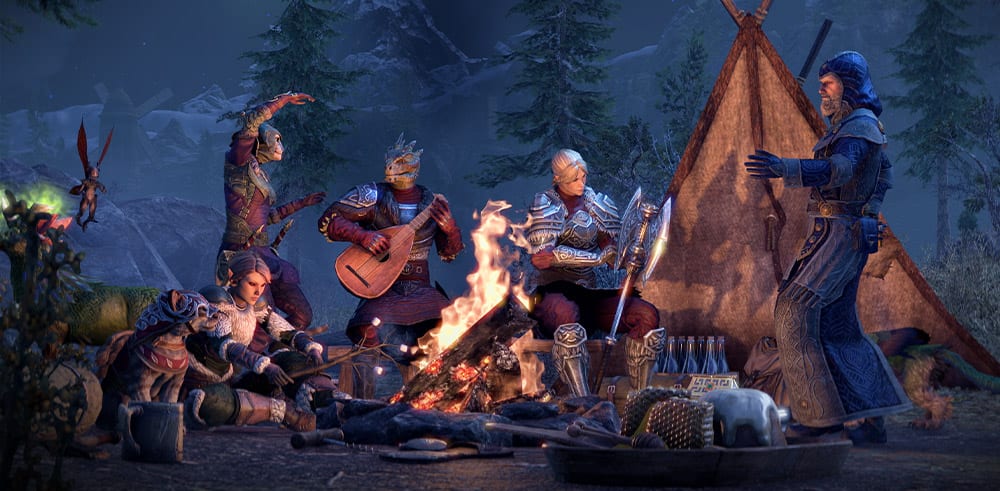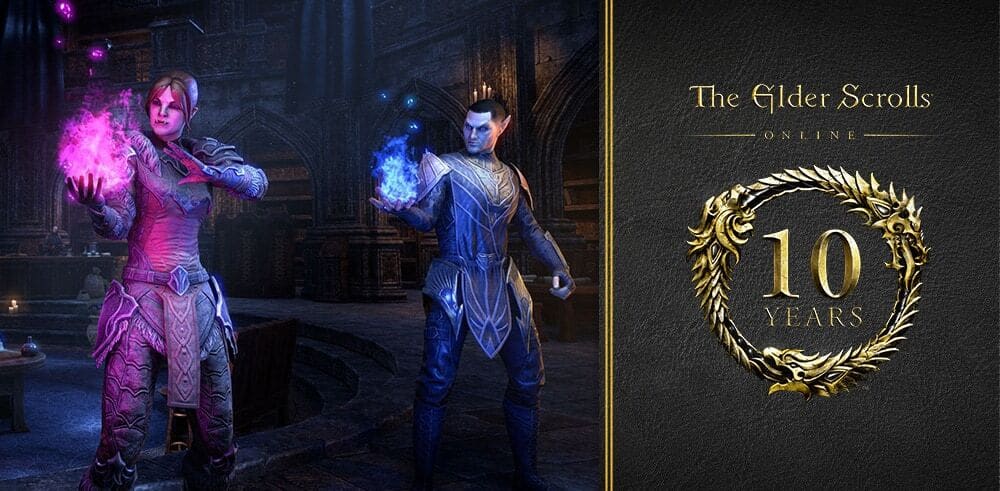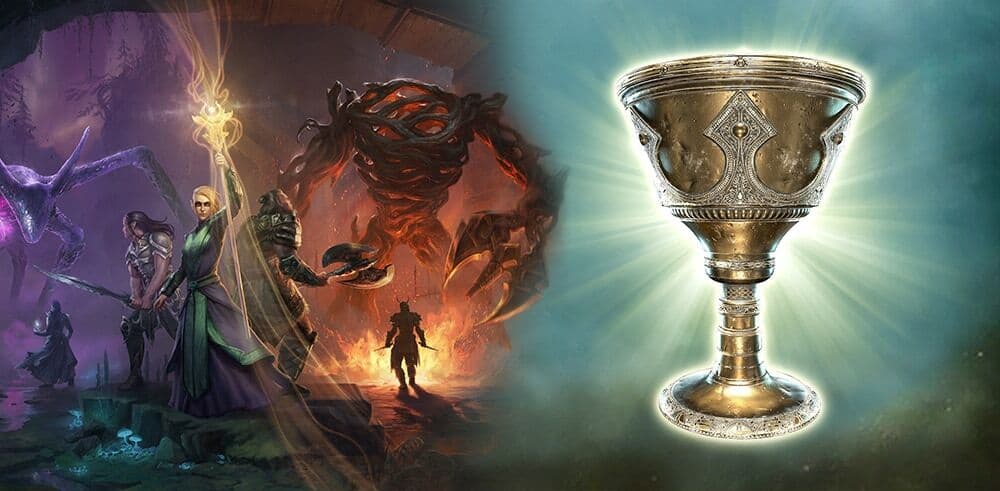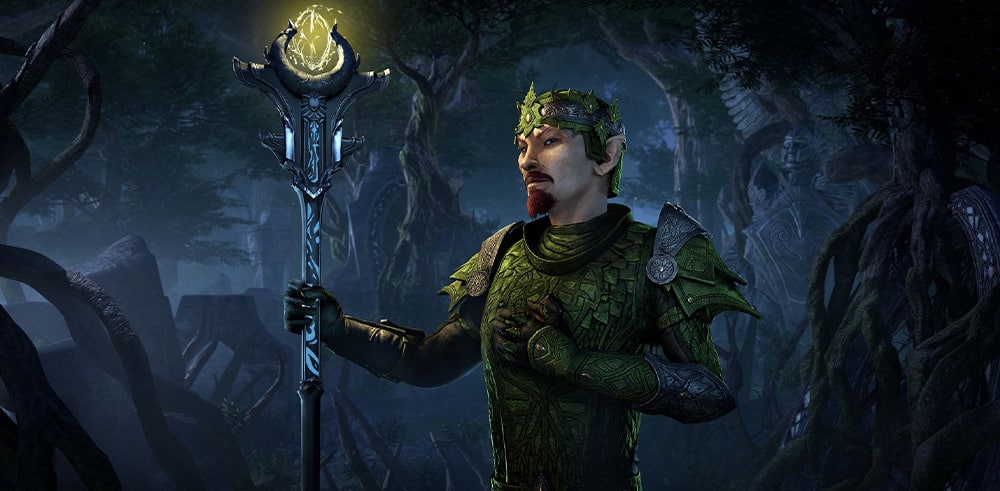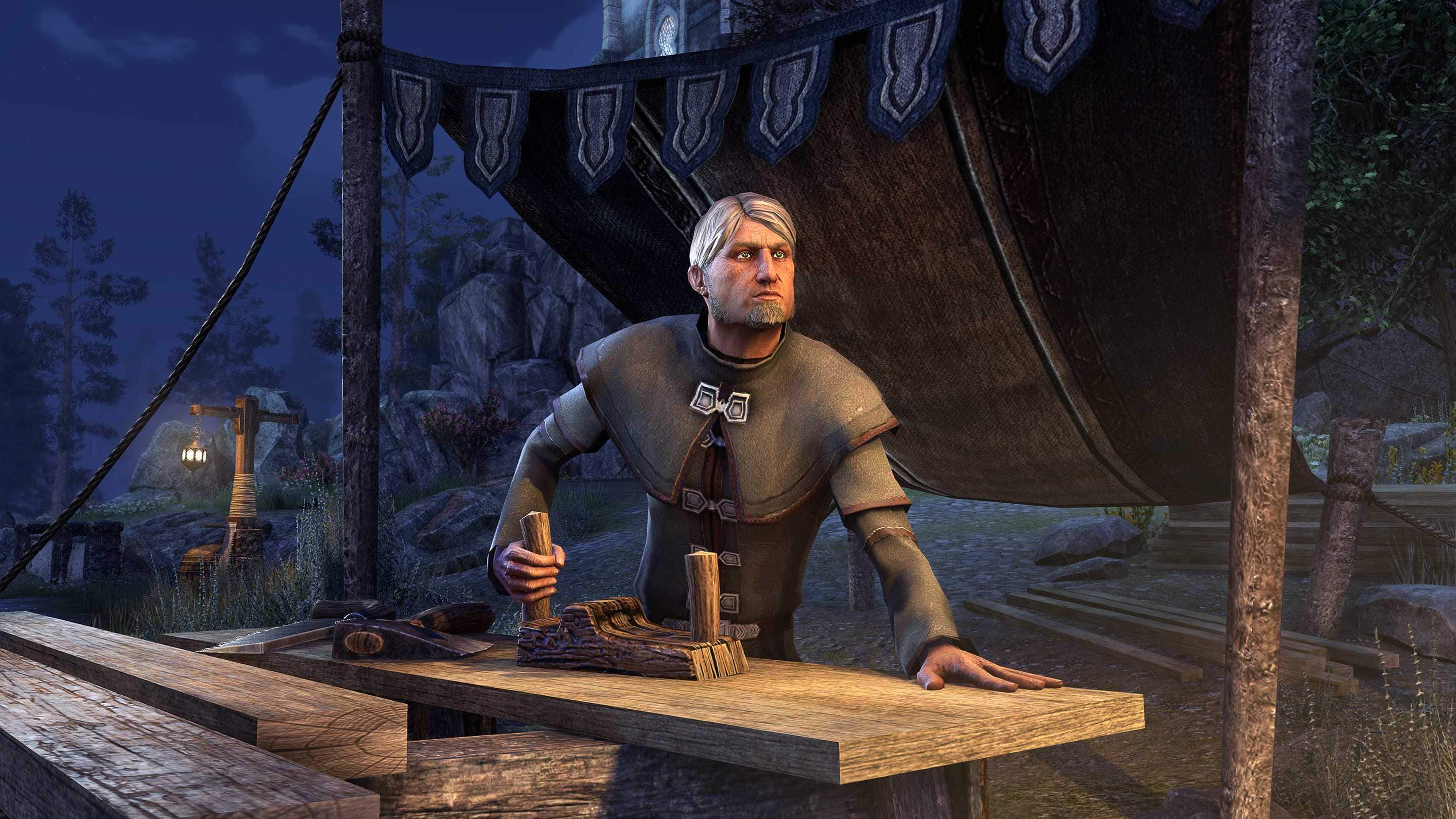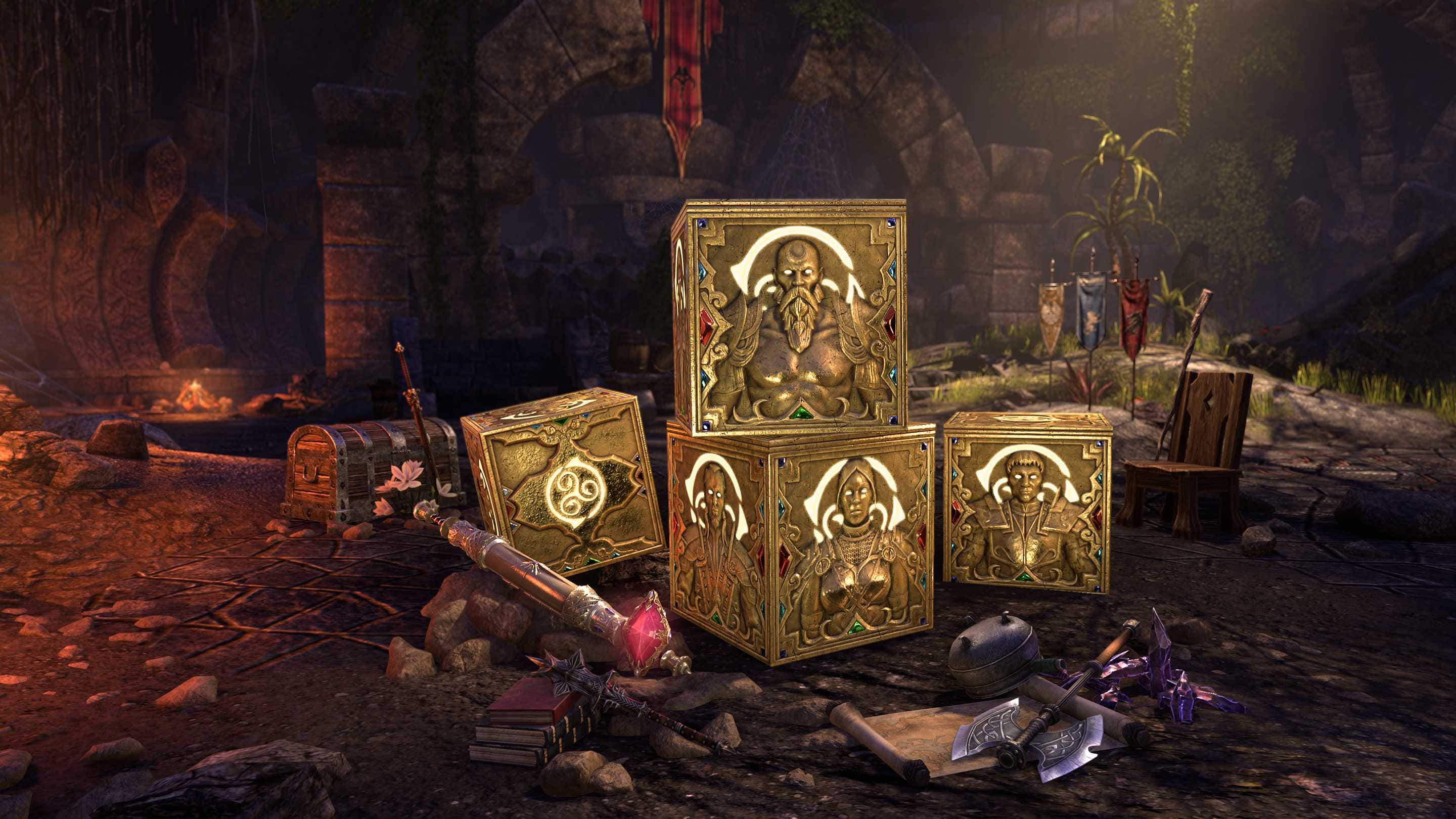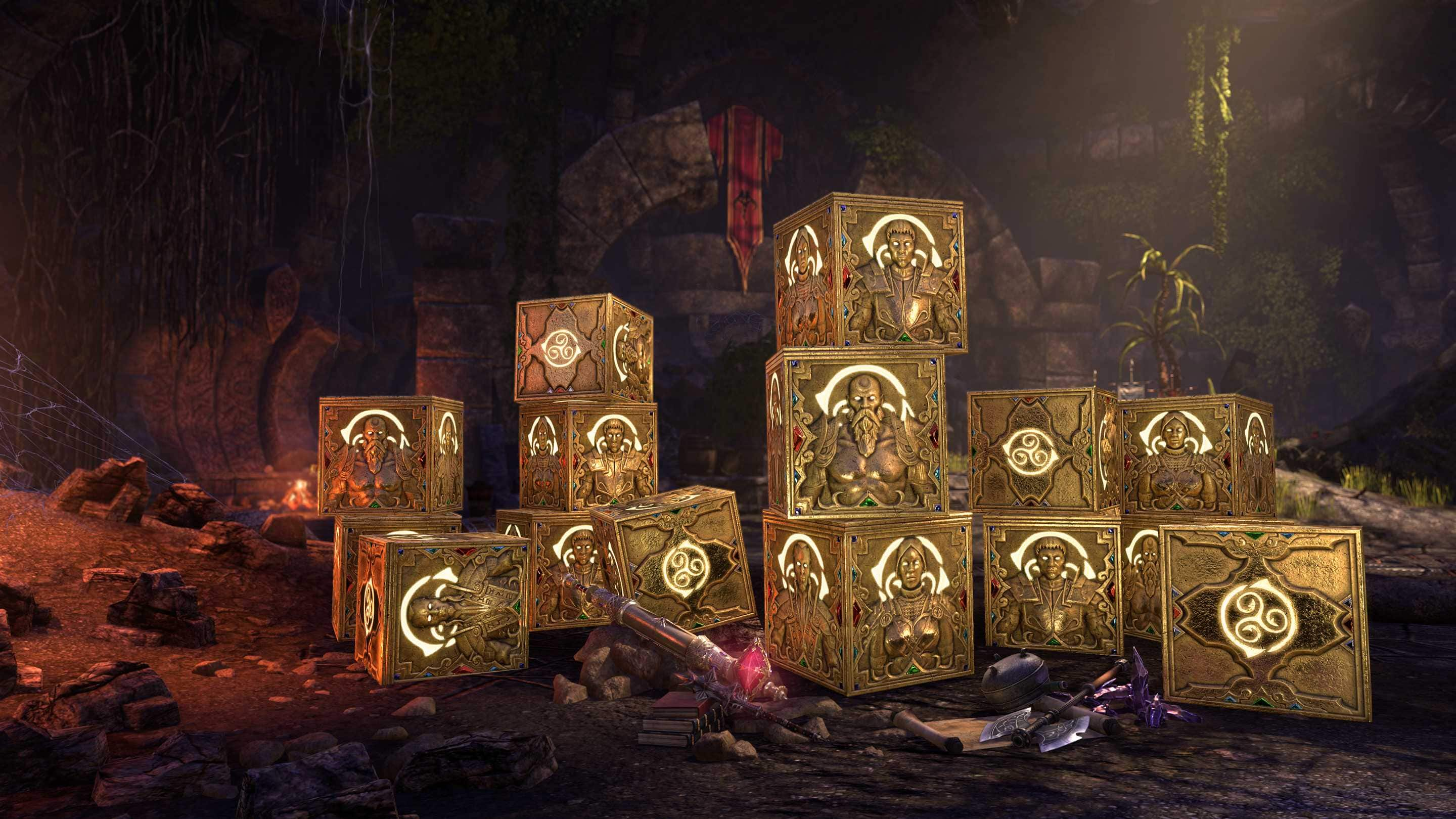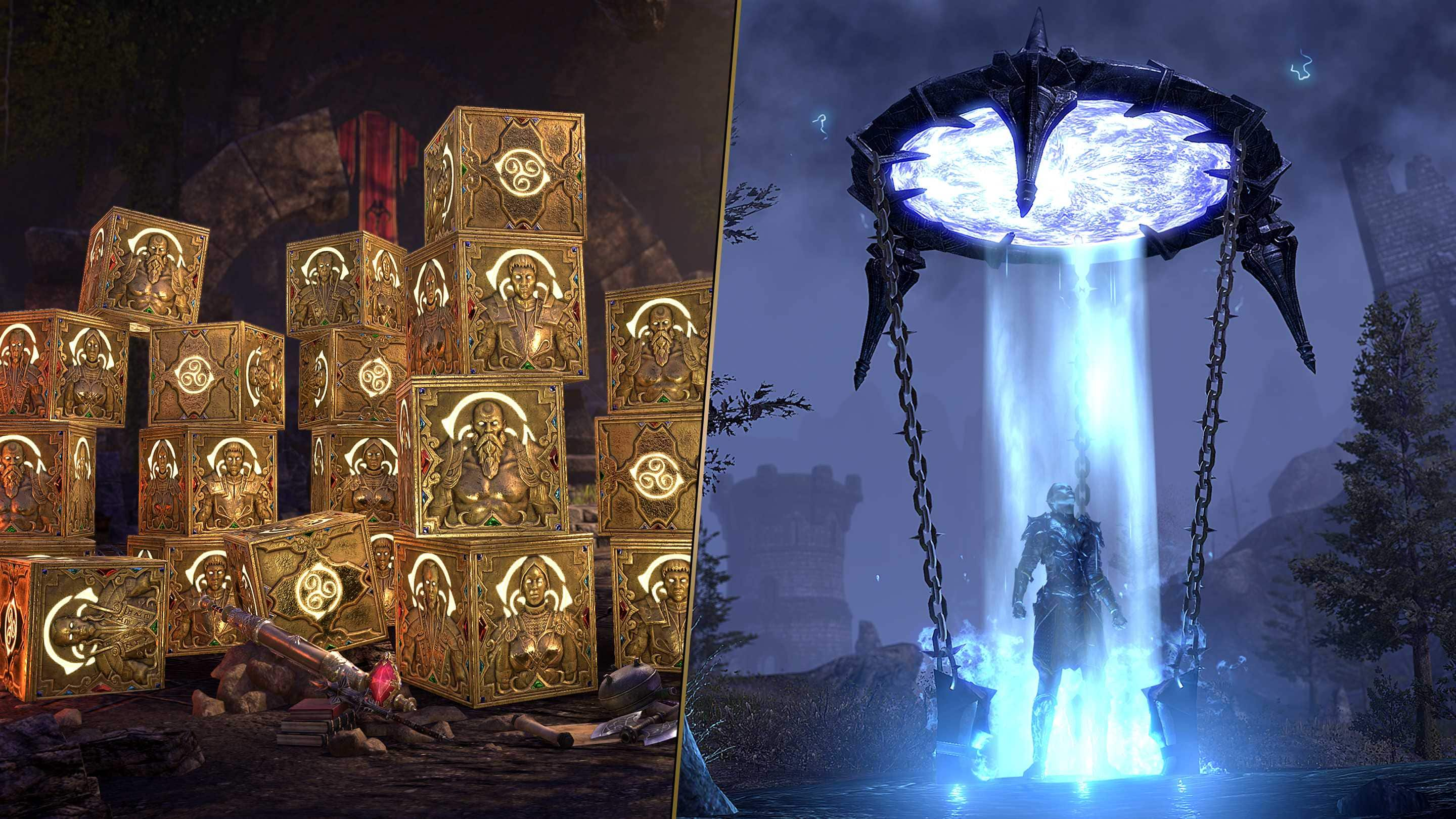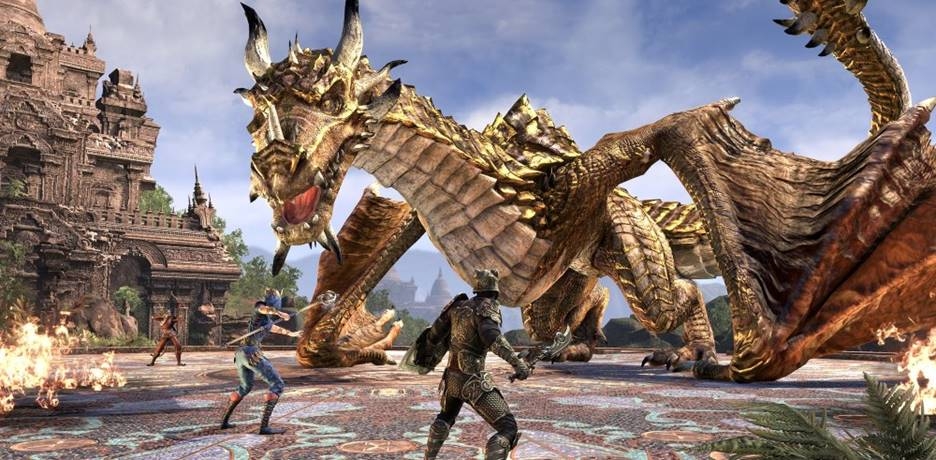
One of the best ways to experience ESO’s hardest content is with a guild. In this newest Community Spotlight, we interview members from two different end-game Trial progression guilds: Mr. Shadow from Uprising Savages on the Xbox One NA server, and both Joker and Raja from Clown Core, a newly formed but already successful guild on the PC/Mac NA server.
Tell us about your guild! When did you first form, and when did you start taking on ESO’s end-game Trial content?
Mr. Shadow: Uprising Savages formed right before the One Tamriel update. We formed to attempt hard mode Maw of Lorkhaj (still one of the most challenging Trials in the game). Now, we aim to push score and be competitive, pushing ourselves as much as we can to be the best!
Raja: Clown Core just formed about a month ago with a mix of end-game raiders. The initial goal was to earn Gryphon Heart (Cloudrest’s Hard Mode achievement), and after knocking that out the first day (amazing!), the team decided to go for score pushing, and that is when I got brought in.
How do you structure your guild in terms of organization and membership?
Mr. Shadow: There is a core team of 12 members and then some substitutions. I also have a few officers who I trust that have been in the guild for a long time and want to achieve the same goals. The officers help maintain the peace within the roster and provide feedback on our Trial progression and thoughts on how we can improve.
Joker: We structured the guild around the Guild Master, and the people who are in it are only people that the Guild Master knows and has played with.
Raja: One cool aspect of Clown Core is that while it is a group of good players, for the most part, we feel like equals. It really helps to keep ideas and suggestions flowing.
Do you have multiple different Trial groups? Or one core team?
Mr. Shadow: Just one core team, as we want to keep our performance as consistent as possible.
Raja: Clown Core is just the one team, and I think I like it like that. Less internal competition and more focus on the guild getting ahead.
What kind of players and personalities make up a perfect Trial group?
Mr. Shadow: There is no such thing as a perfect Trial group. Personalities clash and people argue, and honestly, the group just needs to have the same goals in mind. They need to want to practice and work to push scores, and of course, show up on time for the Trials.
Joker: The ideal group helps each other, likes each other, and shows up on time for each other.
Raja: Skill is important, but like Joker said, when it comes to making a good group, it is not high on the list. There are plenty of great players out there, but if you don’t mesh with the group, you will do more harm than good. For me a big one is loyalty, and I look for people that stand by and look out for their fellow core members.
How does your team communicate during the heat of battle? Is there a single communicator?
Mr. Shadow: This is tricky and depends on the Trial we are attempting. Sometimes, one person will make most of the call outs, but if something needs said, any group member has that right. For example, in Cloudrest, if somebody gets fire (the fire comet AoE that requires the team to group up), I expect them to call it out. If a mechanic needs to be handled and isn’t, someone should speak up.
Joker: We do not have a single communicator; everyone can make call outs if needed.
Raja: I am a huge advocate of the “if you have information relevant to the fight, share it” school of thought when it comes to call outs. Keep it short, to the point, and clear. However, always speak up if you need to.
Beyond being good at dealing damage, tanking, or healing, what other skills are important for Trial group members?
Mr. Shadow: The ability to learn and improve, take criticism, and show up to the Trial and work with your fellow raiders.
Joker: Smart and quick-thinking call outs can save people from dying or losing a lot of DPS.
Raja: Another good one is the ability to brush off a failure. Things will go sideways a lot, and you can’t let that drag you or the rest of the team down. Laugh it off and go again, as 11 people are counting on you to do your best.
How do you prepare for a new Trial or Dungeon?
Mr. Shadow: We practice, watch streams, talk about sets, and work out the group composition for whatever Trial we plan to enter. It is more of a challenge for us console people. We just have what people have learned in PTS, and we aren’t able to try our own things. Still, by the time it goes live on console, PC/Mac has already cleared the Hard Mode, so we have a pretty good idea of what to do. Also not having access to add-ons makes it more challenging for some content. The best way to overcome this is rep after rep!
Joker: PTS is the best way to prepare for new Trials and Dungeons.
Raja: Same. One fun thing we do is take a half-sized group into a normal version Trial to see some of the mechanics. It’s not much threat on normal, so it is good for giggles.
Considering that you take on some of the game’s hardest content, what kind of requirements do you have for those wanting to join your guild?
Mr. Shadow: We have a parse requirement, but it is not the only thing needed, as experience is important when choosing a new core member. Personality can be important from time to time, too, but I try not to let that be a major factor unless they are the type of personality to not show up to Trial or listen.
Joker: People that join the guild are only people that the Guild Master knows and has played with.
Raja: Many groups at the super high end are put together on a “who you know” basis. People are all hitting the DPS checks and their up-times are solid. What matters more is that you can play ball and are free when we need you.
How can somebody who wants to do Veteran and Hard Mode Trials improve their basic skills?
Mr. Shadow: Get reps in anything you can find. Practice on the toon you want to play with and learn the fights. I encourage people to practice every class and role, as you never know when something comes up and you need to step up.
Joker: Watch videos, talk to people, test out things, and prepare before the Trial.
Raja: All of that along with not being afraid of progression groups or pugs. You learn so much there that you will never learn jumping right in with an amazing group, and it is worth the time and effort.
What advice do you have for somebody who is thinking about starting a Trial guild?
Mr. Shadow: It is a lot of time and effort. The biggest thing is finding 11 other people with the same goals that can come together for Trial constantly. Using things like Discord or other chat apps help a lot for organizing and figuring out who will and won’t be there. The biggest thing is to get to know your community on the platform you are playing on, because at the end of the day, it’s going to be somebody from the community joining the raid.
Joker: Be a nice Guild Master! Help your fellow members and try to have fun doing it.
Raja: Make sure you have a goal and that the people who are joining your guild want the same thing.
What is next for your guild? Are you looking forward to Sunspire?
Mr. Shadow: Yes, Sunspire is the plan, and we all are looking forward to becoming the next Godslayers!
Raja: We are still aiming for the Cloudrest world record, so we will focus on that for a bit. Then, I hope we take on Sunspire, but it will be up to the group as a whole.
A massive thank you to Mr. Shadow, Joker, and Raja for taking the time to answer our questions about their guilds. With Sunspire coming as part of The Elder Scrolls Online: Elsweyr, there’s a great new reason to check out ESO’s trickiest end-game content and join (or start!) a Trial guild. Don’t forget, you can also now use the new Guild Finder to find the right group for you.
Are you a member of an end-game Trial guild? Share your exploits with us on @TESOnline, Instagram, and Facebook.
